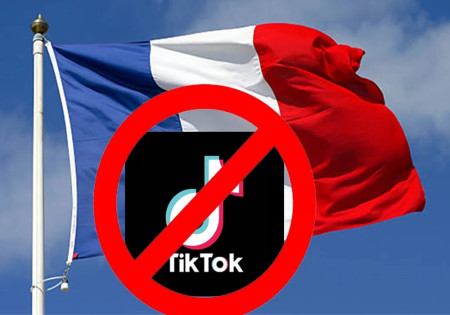He released a statement which read, “In order to guarantee the cybersecurity of our administrations and civil servants, the government has decided to ban recreational applications such as TikTok on the professional phones of civil servants.”
The statement said that in recent weeks, several of their European and international partners have adopted measures restricting or prohibiting the downloading and installation of the TikTok by the govt officials. ‘After an analysis of the issues, particularly security, the government has decided to prohibit henceforth the downloading and installation of recreational applications on professional telephones provided to public officials,’ it stated.
The statement states that recreational applications do not have sufficient levels of cybersecurity and data protection, and therefore they can constitute a risk if installed on government-issued devices.

Accordingly, minister Stanislas Guerini sent the directions to all the ministers and secretaries of the ministries to ensure the implementation of the decision. The prohibition comes into effect immediately and applies to all government officials. The Interministerial Digital Department will ensure the implementation of this instruction, in close collaboration with the National Agency for Information Systems Security.
The statement by the minister stated that cybersecurity of the administrations and public servants constitutes a crucial issue, and the ministry is fully geared to tackle this issue.
In response to rising privacy and cybersecurity concerns, an increasing number of nations in North America, Europe, and Asia-Pacific have banned the popular video-sharing app from use on personal and/or government devices. Invoking ‘concerns’ about cybersecurity, privacy, and false information, Belgium temporarily banned TikTok on devices purchased or owned by the federal government.
TikTok is not permitted on government-issued smartphones in Canada. The authorities asserted that the app presents an ‘unacceptable’ risk to privacy and security. The future downloading of the application by government employees is likewise prohibited.
The Danish Defense Ministry ‘forbade personnel’ from installing TikTok on their work phones and instructed those who had already done so to remove it as soon as possible.
The three major institutions of the 27-member bloc, the European Parliament, the European Commission, and the EU Council, have all banned TikTok on employee devices.
Following the ‘recommendations’ of government cybersecurity experts, New Zealand legislators and employees of the country’s Parliament are not allowed to have the app on their work phones. After the Justice Ministry of Norway issued a ‘warning’ that the app shouldn’t be put on government employees’ phones, the Norwegian parliament barred Tiktok on work devices.
Taiwan imposed a public sector ban on TikTok after the FBI warned that it posed a ‘national security risk.’ Chinese-made software, including other apps like Douyin and Xiaohongshu, are not permitted to be used on government equipment, including smartphones, tablets, and desktop computers.
British authorities banned TikTok from mobile phones used by government ministers and civil servants as a ‘precautionary move’ on security grounds. The U.S. also notified government agencies to delete TikTok from federal devices and systems over ‘data security concerns.’
Afghanistan’s Taliban leadership banned TikTok and the game PUBG on the grounds of protecting young people from ‘being misled.’ TikTok has been temporarily banned four times in Pakistan due to worries over the app’s promotion of ‘immoral content.’
India imposed a nationwide ban on TikTok and many other Chinese apps, including PUBG Mobile, WeChat, Shein and AliExpress over ‘privacy and security’ concerns. More than 250 Chinese applications, including those for betting and lending loans, have already been blocked by the government because they possess content that is harmful to India’s sovereignty and integrity.
Despite the reservations raised by so many countries, Bytedance has maintained that it does not share any information with the Chinese government. The company claims that it is independently managed and refutes allegations that it collects more user data than other social media sites.
However, many governments are still wary of the platform and its connections to China.


